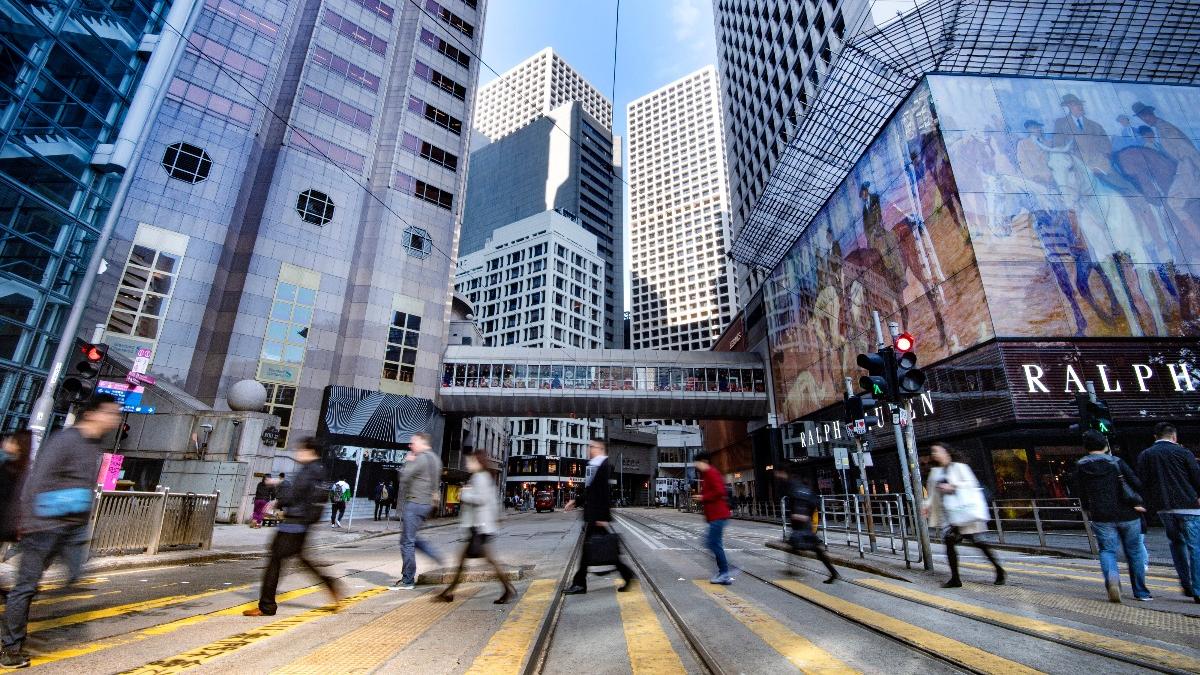 This undated photo shows people crossing a road in the Central district of Hong Kong. (PHOTO PROVIDED TO CHINA DAILY)
This undated photo shows people crossing a road in the Central district of Hong Kong. (PHOTO PROVIDED TO CHINA DAILY)
HONG KONG - Business operators in the accommodation and food services, retail, and manufacturing sectors expect their business situation to improve in the third quarter of this year, as the local pandemic situation eases and social distancing measures are gradually relaxed, according to the Quarterly Business Tendency Survey for the third quarter released by the Census and Statistics Department on Friday.
ALSO READ: Survey: HK SMEs' business confidence remains stable
The C&SD conducted the survey between June 2 and July 6 to gauge business operators’ perception of the business environment for the third quarter of this year. The survey focuses on the areas of business/output volume, employment and selling price/service charge.
For all surveyed sectors taken together, the proportion of respondents expecting their business situation to be better in the third quarter than in the preceding quarter is higher than the proportion expecting it to be worse
For all surveyed sectors taken together, the proportion of respondents expecting their business situation to be better in the third quarter than in the preceding quarter is higher than the proportion expecting it to be worse.
When compared with the survey results of the second quarter, the proportion of respondents expecting a better business situation in the third quarter, at 18 percent, is higher than the corresponding proportion of 13 percent in the second quarter. On the other hand, the proportion of respondents expecting a worse business situation has decreased from 21 percent in the second quarter to 12 percent in the third quarter.
A government spokesman cautioned in a statement on Friday that business prospects in the second half of this year will be mixed: “The continued revival of domestic economic activities from the earlier weaknesses could provide support to local confidence, but the extent would be dependent on the local pandemic situation and financial conditions.”
The continued revival of domestic economic activities from the earlier weaknesses could provide support to local confidence, but the extent would be dependent on the local pandemic situation and financial conditions.
Spokesman, HKSAR government
The spokesman added that a worsening global economic outlook would weigh on sentiment in the externally-oriented sectors in the near term.
The survey gathers views on short-term business performance from the senior management of about 560 prominent establishments in 10 sectors in Hong Kong, namely manufacturing; construction; import/export trade and wholesale; retail; accommodation and food services; transportation, storage and courier services; information and communications; financing and insurance; real estate; and professional and business services sectors.
READ MORE: Business confidence seen as catalyst for GBA growth
“Looking ahead, we expect the external demand to remain soft given the weaker global consumer sentiment and elevated inflation. Yet, Hong Kong’s purchasing managers index could still stay in the expansionary zone in the third quarter with support from the domestic demand, barring imposition of stricter antivirus measures,” OCBC Wing Hang economist Tommy Xie predicted.
Alicia Herrero, Asia Pacific chief economist at Natixis Corporate and Investment Banking, said Hong Kong still will face two major risks ahead.
First, the self-imposed border controls are causing Hong Kong to lag behind most places in the world, especially international competitors such as Singapore, in attracting global investment and talents. Second, the slowdown of mainland economy could dampen the Hong Kong economy, with the erosion of not only the electronics supply chain but also of important mainland-related business in Hong Kong.
“All in all, laxer domestic mobility restrictions should bring a minor economic rebound in the second quarter, and possibly afterwards if no further restrictions are imposed again. Still, risks remain on Hong Kong’s self-imposed border control and the Chinese mainland’s COVID situation,” Herrero noted.


